
IPD Program
9:30am -10:00am
Doors Open
10:00am -10:15am
Initial Prayer
10:15am – 10:35am
- Welcoming words by Managing Director for Creative Nations Nevra Murdock, Yurok and Oglala Lakota
- Welcoming words by RRB Co-founder Jerilyn DeCoteau, Turtle Mountain Chippewa
10:35am – 11:00am
Traditional Dance Presentation by Regina YoungBear and Children, Southern Arapaho and Cheyenne, accompanied by singers
11:00am-12:10pm
First Panel Land Access & Reparations
Speakers:
- Fred Mosqueda, Southern Arapaho
- Richard Williams, Oglala Lakota and Cheyenne
Moderator: Andrea Valeska, Mapuche Descendant
12:10pm – 12:30pm
Q & A
12:30pm – 1:40pm
Second Panel: The importance of preserving Native Language
Speakers:
- Billie Sutton, Southern Arapaho
- Donald Whyte, Ute Mountain Ute
- Teresa HisChase, Northern Arapaho
- Regina YoungBear, Southern Arapaho and Cheyenne
Moderator: Amanda Goljenboom, Southern Arapaho & Cheyenne
1:40pm – 2:00pm
Q & A
2:00pm-2:10pm
Traditional Native Flute and Spiritual teachings to uplift, inspire, heal, and empower by Joseph Medicine Robe
2:10pm-3:30pm
LUNCH BREAK
3:30pm – 4:40pm
Third Panel: Indigenous Food Sovereignty
Speakers:
- Jacqueline White, Northern Arapaho and Chippewa Cree
- L’Dawn Olsen, Eastern Shoshone
- Saydie Sago, Zuni Pueblo and Mescalero Apache
Moderator: Rennea Howell, Quapaw
4:40pm- 5:00pm
Q & A
5:00pm – 6:10pm
Fourth Panel: Importance of Ceremony and Water Protection
Speakers:
- Joseph David Osage, Cheyenne
- Gabriela Galindo, Nahua and Wixárika descendant
- Leala Lakota Pourier, Oglala Lakota and Cheyenne River
6:10pm – 6:30pm
Q & A
6:30pm
Networking time / End of IPD celebration
Presenters
Nevra Murdock, Yurok & Oglala Lakota
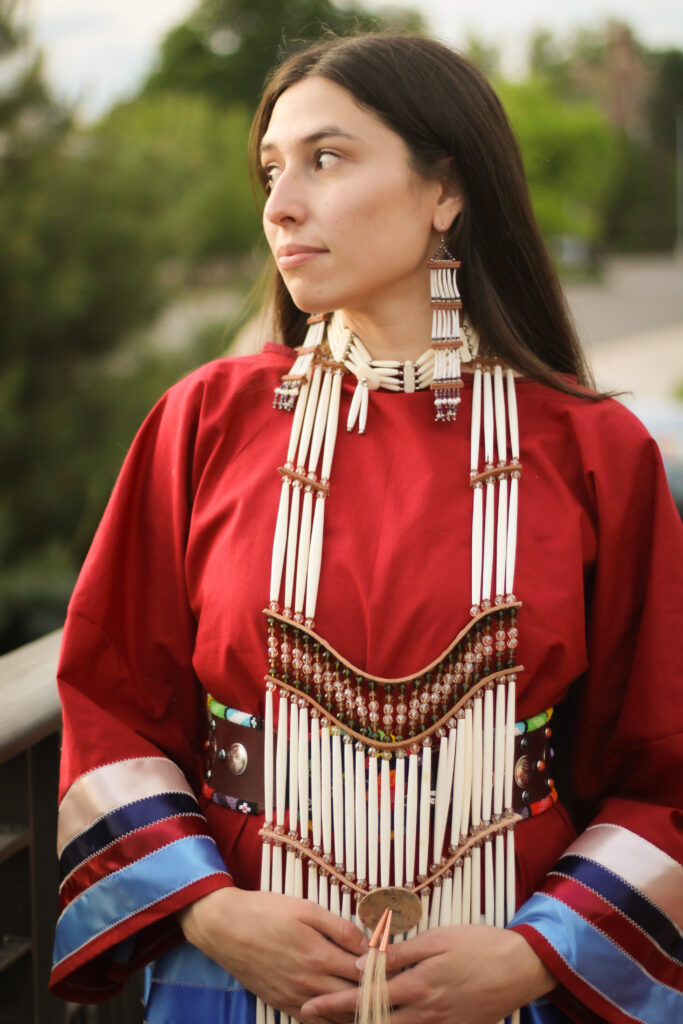
Nevra Murdock is a member of the Yurok Tribe in Northern California and a descendant of the Oglala Lakota Tribe, where she grew up in Pine Ridge, South Dakota. During her youth she attended the Red Cloud Indian School and grew up immersed in her Lakota culture.
She moved to Colorado in 2019 to begin her college journey and graduated from the University of Denver in June 2023 with her Bachelor of Arts in Sociology. In her time on campus she took on many leadership roles. She was Co-Chair President of the Native Student Alliance for the 20’-21’ academic year as well as the 22’-23’ academic year. During the 21’-22’ academic year she was Co-Chair of the Powwow Committee for the annual New Beginnings Powwow held by the University of Denver.
She is dedicated to showcasing representation for all Native nations as well as seeking out social justice through cultural avenues, especially through the form of art. She is the Managing Director for Creative Nations at the Dairy Arts Center.
Jerilyn DeCoteau, Turtle Mountain Chippewa
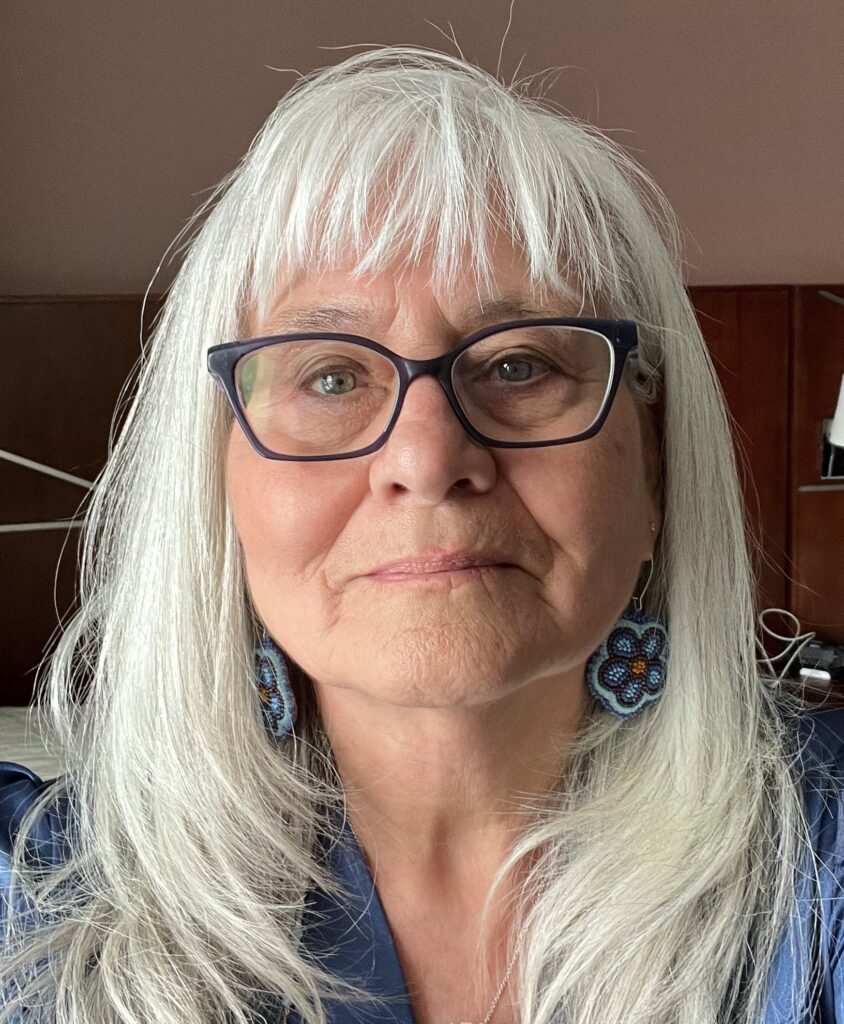
Jerilyn DeCoteau is a member of the Turtle Mountain Band of Chippewa. She earned her law degree at the University of Oregon in 1983. She has been a justice for the Pueblo of San Ildefonso Supreme Court since 2012 and was recently appointed associate justice for the newly created Kiowa Tribe Supreme Court. She served on the Turtle Mountain Tribal Court of Appeals and later as legal counsel for the tribe. Jerilyn was a staff attorney at the Native American Rights Fund and a trial attorney for the US Department of Justice, Indian Resources Section, working on Indian water rights for several tribes. She taught Indian law as an adjunct professor at Yale Law School and at the Turtle Mountain Community College, was a visiting professor at the University of Denver Law School, and served as Director of the Indian Law Clinic at the University of Colorado Law School.
Jerilyn is a founder and past president of board for the Native American Boarding School Healing Coalition. She is Co-director of “Toward Right Relationship” which offers interactive workshops on the effects of colonization on Turtle Island and talks on Indian Boarding Schools.
She was instrumental in getting the City of Boulder to adopt an Indigenous Peoples Day Resolution and permanent Indigenous Peoples Day and was co-founder of “Right Relationship Boulder” a community group to help implement the Resolution and work to build “right relationship” with the Native peoples who once lived in Boulder and those who live there today. Jerilyn lives near Boulder, Colorado with her husband. They have two daughters, 6 grandchildren and 2 great grandchildren, who all live at Turtle Mountain, Fargo and Bismarck, and a son who lives in New Mexico.
Speakers
Panel #1: Land Back in Colorado State
Fred Mosqueda, Southern Arapaho
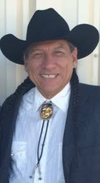
Fred was born in the small community of Canton, Oklahoma, where he grew up near the old Cantonment site. He was born into Little Raven’s Arapaho Band (Woxu’ei3i’). His Grandmother, Mother and relatives raised him in the Arapaho way and taught him to speak the Arapaho Language. He attended public school in Canton, Oklahoma and earned a B.A. Degree from SWOSU, Weatherford, Oklahoma. He is an enrolled member of the Southern Arapaho tribe.
After serving in the United States Marine Corps and working in the oilfield, he went to work for the Cheyenne and Arapaho Tribes in 1988. He has worked in several capacities with the Tribes throughout the years and is presently employed as the Arapaho Outreach Specialist, in the Language and Culture Department. In this position, he also serves as the NAGPRA/Sand Creek Massacre Representative for the Cheyenne and Arapaho Tribes. He works to support the Tribes in preserving their culture, language and traditional practices and ceremonies.
Richard Williams, Cheyenne & Oglala Lakota
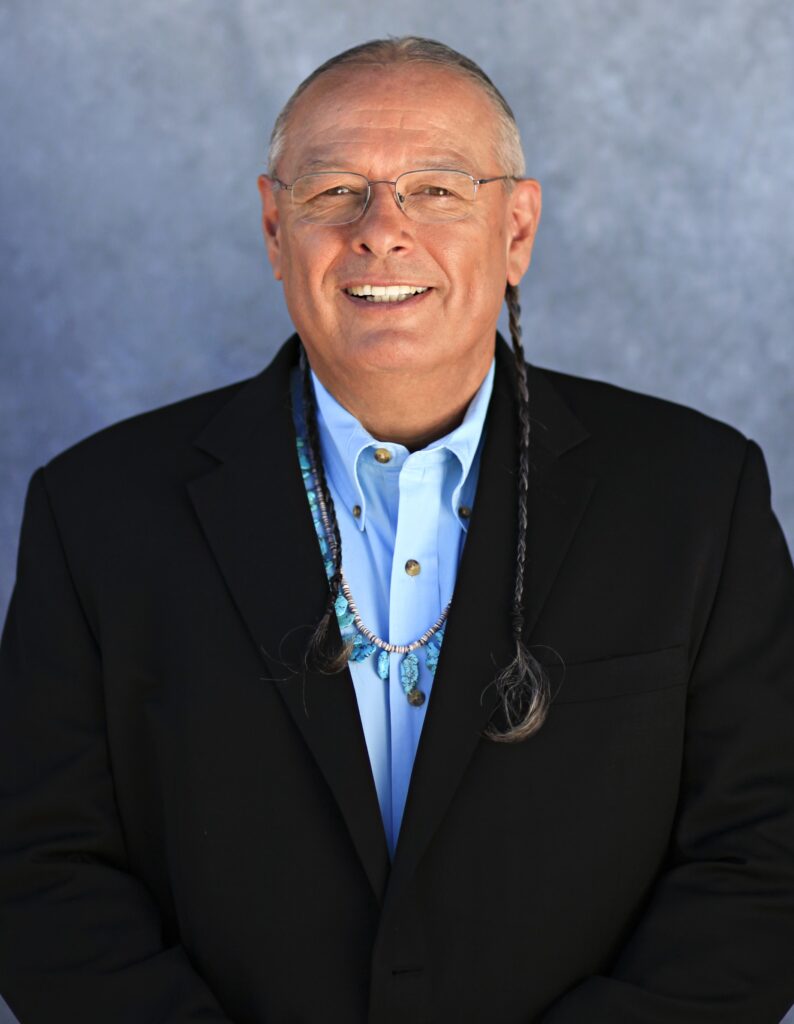
Leader of the People of the Sacred Land. Richard “Rick” B. Williams, is an enrolled member of the Oglala Lakota Tribe and is part Cheyenne. Rick is currently the Leader of the People of the Sacred land, a non-profit located in Colorado that is currently preparing a Truth Restoration and Education Commission to study the truth of what happened to Indian people in Colorado. In the past, he has served as the President & CEO of the American Indian College Fund (“Fund”). The Fund, a national nonprofit organization headquartered in Denver, Colorado, raises private support for scholarships, endowments, programs and public awareness on behalf of the 34 U.S. Tribal colleges and universities. Rick is an outdoor enthusiast and was selected to serve as an inaugural board member of Outdoor Equity board. Prior to joining the Fund, Mr. Williams served both as the director of the Student Academic Service Center and the director of Minority Student Affairs at the University of Colorado. Additionally, he also has served as the Director of American Indian Upward Bound, a program designed to provide educational opportunities to Indian youth. Dedicated to Indian education, Mr. Williams continues to make time for involvement in programs and organizations targeting Indian youth and education.
Mr. Williams received an M.A. in Education Administration (Summa Cum Laude) from the University of Wyoming in 1987. In 1975, he became the first American Indian student to graduate with a B.A. (Magna Cum Laude) from the University of Nebraska – Lincoln. In 1999, the University of Nebraska honored him with the Alumni Achievement Award and Distinguished Alumni Award. Rick was selected as the National Indian Education Association- Educator of the Year in 2005. Rick was honored with an honorary PhD. from Roger Williams University in 2007. Rick loves doing historical research and is an advocate for Native Language Immersion programs and is committed to becoming a fluent Lakota speaker.
Moderator: Andrea Valeska, Mapuche Descendant
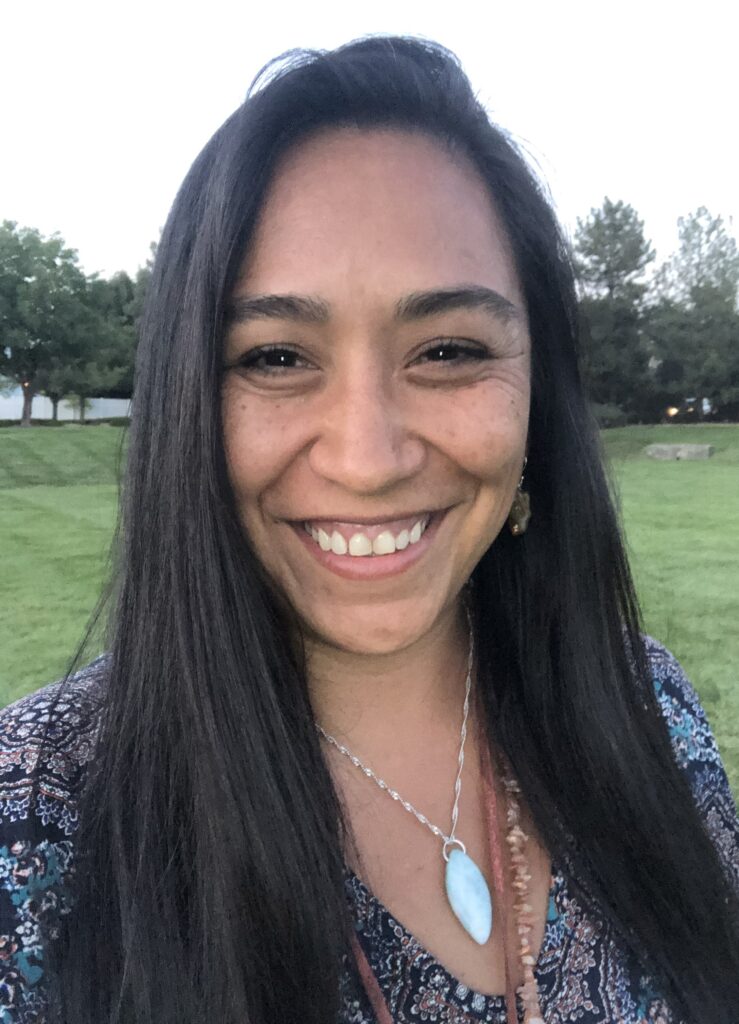
Andrea Valeska is a Mapuche descendant, born and raised in the South of Chile (Bio-Bio Region). Her first years of life she lived under a dictatorship, where she witnessed tremendous human abuse and abuse of power. She has dedicated her life to the healing of ancestral trauma and women empowerment. She serves as a Holistic Life Integration Coach, Integrative Nutrition Health Coach, Herbalist, Women’s Circles Facilitator and Intuitive guide. She is a catalyst of change, and through her holistic and integrative approach she guides individuals and communities to reconnect with the rhythms of nature, embrace bio-individuality and authenticity, co-creating heart led sustainable systems based on Empowerment and Conscious Leadership.
Andrea Valeska collaborates with various local and national non-profit organizations with the intention to create awareness of and uplift Indigenous voices and perspectives, to encourage conversations about reparations, and the importance of BIPOC inclusion. She is an active advocate for the protection of Sacred Indigenous Traditions in the state of Colorado and nationally. She truly believes in the power of Education towards Freedom.
She is an active volunteer and participant of the Right Relationship Coordinating Council, Indigenous Advisory Council, Land working group and she is the Coordinator for 2023 Indigenous Peoples Day celebration. She also manages Right Relationship Boulder external communications and marketing.
As a first generation graduate, she has a degree in Engineering Business Administration, a BA in Business Administration, and a Master of Administrative Science, where she is certified in International Leadership and Nonprofit Organization Development. She is also certified as an Integrative Nutrition Health Coach and as a Facilitator for Women’s Healing Circles.
Panel #2: The importance of preserving Native Language
Billie Sutton, Southern Arapaho
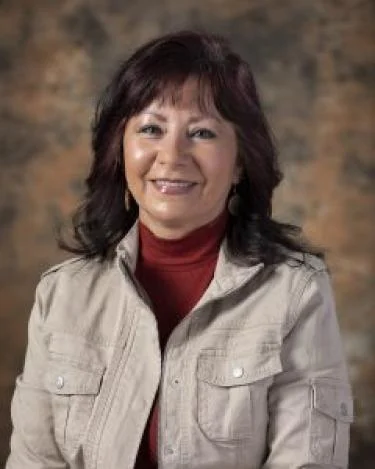
Noobései Nííbei ‘Singing Southern Woman’ (Billie Sutton), Hinóno’éí (Arapaho) is from Canton, Oklahoma. She was the first woman to become an IT teacher in the Oklahoma Department of Career and Technology Education within the Electronics/Computer Service division and taught for 27 years before retiring. After retiring from teaching, she worked for the Arapaho language program for several years as a curriculum specialist and language teacher.
She also served the Cheyenne and Arapaho Tribes in other capacities as well, including legislator for Arapaho District 1 for the tribal government, a position from which she recently retired. She served as a board member of the Cheyenne and Arapaho Tribal College and is currently on the Cheyenne & Arapaho language board. She has always been an ardent Arapaho language advocate and creates short culture and language learning videos that are posted on YouTube in an attempt to promote Arapaho language revitalization. Noobései Nííbei has been an active part of Boulder’s Indigenous Peoples Day events from the start as a representative of the Southern band of the Arapaho people.
Donald Whyte, Ute Mountain Ute
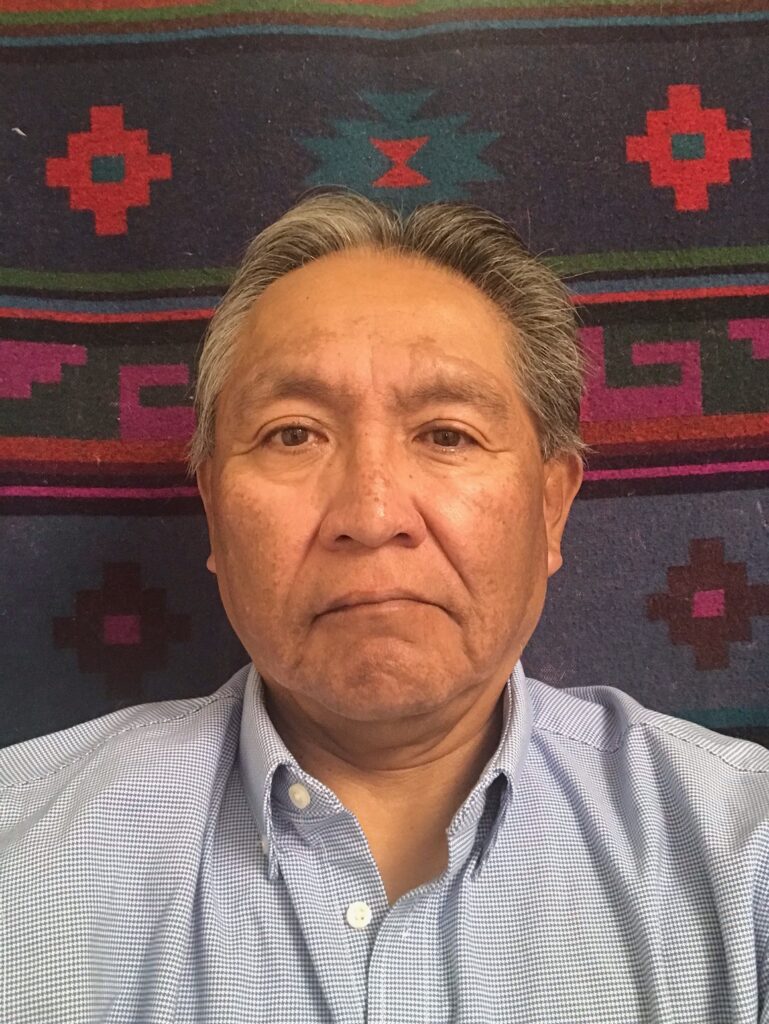
Donald currently lives in the Denver metro area. He grew up on the Ute Mountain Ute reservation from southwest Colorado and attended public school just off the reservation. Later he attended college and found a seasonal position as a wildland firefighter with the federal government. This led to a 27 year career working for the National Park Service as a Park Ranger (Law Enforcement). In his journey, Donald completed his paid position as Chief Ranger, duty stationed at Chaco Cultural National Historical Park. His other duty stations included Mesa Verde, Hovenweep, Sagurao, Haleakala, Yellowstone, Rocky Mountain National Parks, some 12 park units across the western United States.
Donald Whyte introduction to ancestral language preservation began when the Southern Ute Indian Tribe (SUIT) offered a Ute Language Immersion program in 2020. For two years he attended this certificate program to have the opportunity to learn to speak, read, write, and teach the Ute language in school settings.
“There is so much to learn, and I blend my ancestral world with landscape (sacred geography). From the land our words have their origins. “
Teresa HisChase, Northern Arapaho
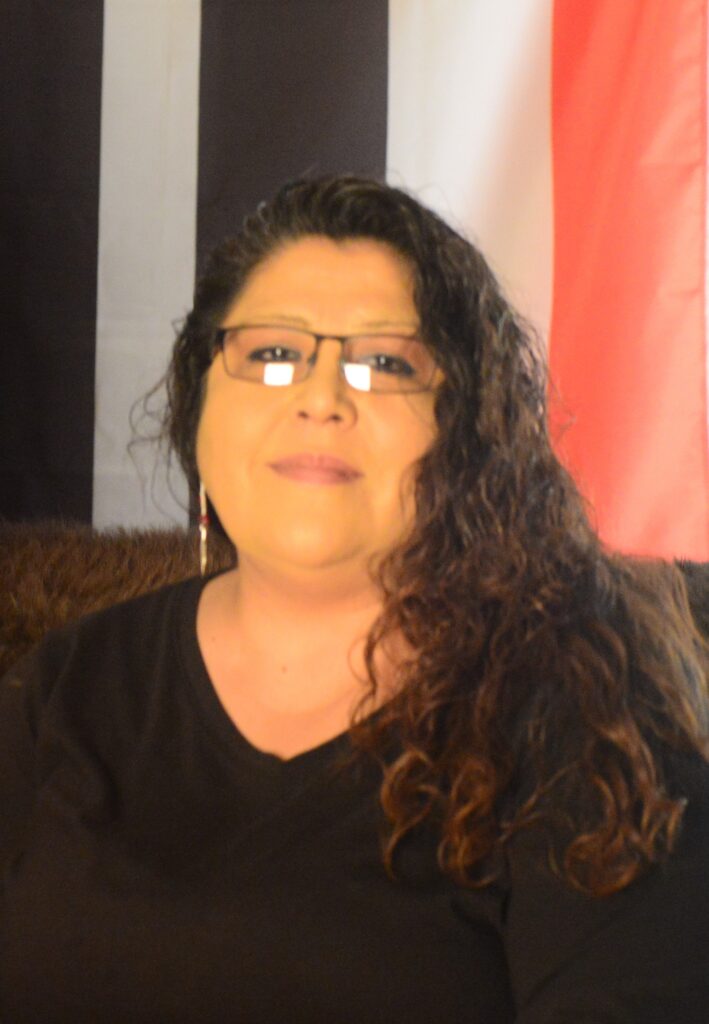
Nookhoosei Niibei, Singing Sage. Councilwoman Teresa HisChase is a member of the Northern Arapaho Business Council for the Northern Arapaho Tribe of Wyoming. She holds her AAS in Tribal Management and her BS in Business Administration. She speaks Arapaho language and has taught Arapaho language & culture at all levels: from students at Immersion preschool through college levels. She assisted the fluent tribal elders in developing an Arapaho language application in 2017 and worked with Tribal elders and the University of Wyoming faculty in developing the Four Hills of Life application. She’s been working with Tribal Elders on various projects since 2004.
She is a proven grant writer and has secured various grants for Arapaho language revitalization efforts for the Tribe. Her overall goal she hopes to achieve while serving on the Business Council is to help in developing a revolving economy so that socioeconomic recovery can occur. Before she was elected to the Council, she worked at Fremont County School District #38, and served as the 21st Century Community Learning Center Coordinator, 6-12 grades Arapaho language instructor, Business Manager, and Indian Education Director. She currently resides in Riverton, Wyoming with her family.
Regina YoungBear, Southern Arapaho
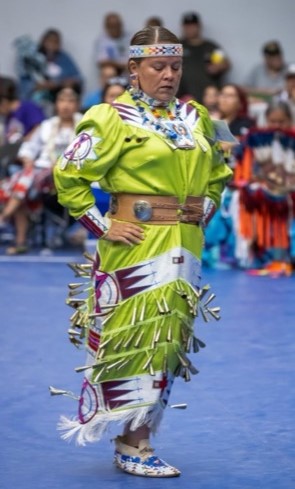
Arapaho Language and Culture Outreach Specialist for the Cheyenne Arapaho Language and Culture Program from the Watonga, Oklahoma community. Regina is a mother of 5 children and one grandson.
She is enrolled as a Cheyenne and Arapaho Tribal Member.
Regina graduated from Watonga High School, Watonga, Oklahoma attended Haskell Indian Nations University and Southwestern Oklahoma State University Regina started working with the C&A Language Department seven years ago, being one of three from Oklahoma learning how to speak Arapaho as a two language learner while also teaching others how to understand and speak basic Arapaho. Language learning is never ending, as we must speak to one another, teach others the importance of learning indigenous languages and help promote language learning. In her free time, she does beadwork and sewing powwow regalia for her family and friends and also dancing in the Jingle Dress Category.
Regina encourages all language learning efforts to everyone!
Moderator: Amanda Goljenboom, Southern Arapaho & Cheyenne
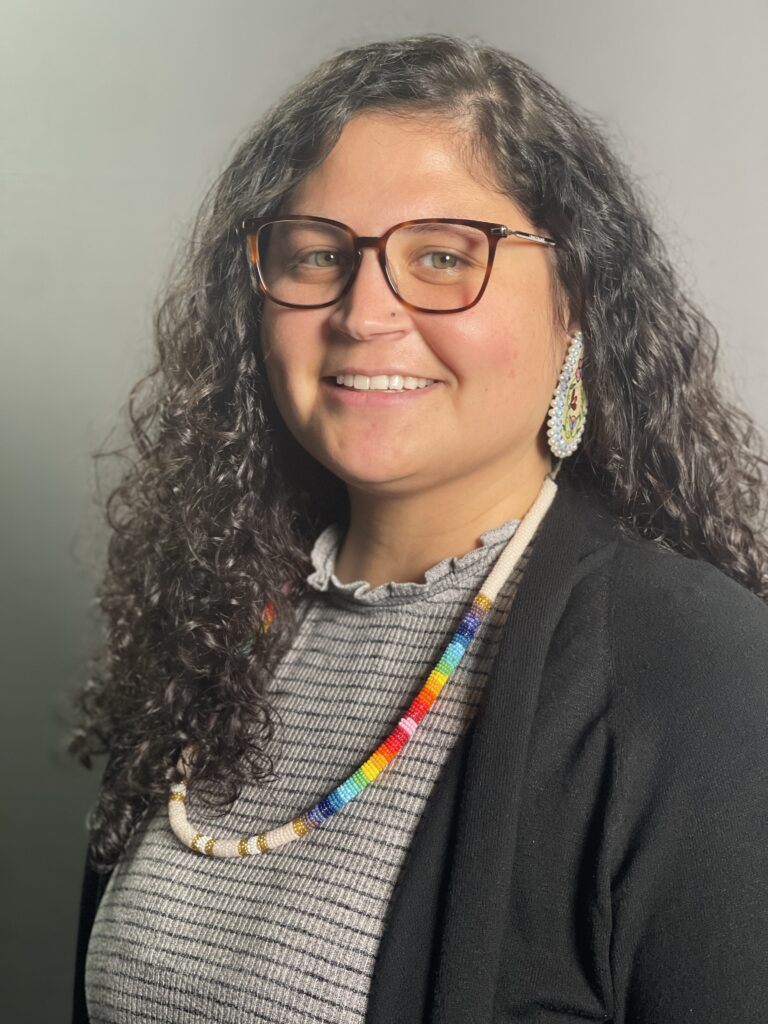
Hísei Cebiséí ‘Walking Woman’ (Amanda Goljenboom) is an enrolled member of the Cheyenne and Arapaho Tribes of Oklahoma and currently resides in Mustang, Oklahoma. She started and is presently working for her tribe in June 2021 as an Arapaho Junior Apprentice.
Hísei Cebiséí grew up in Pickett, Wisconsin, and is a mother to her 15-year-old son, Yoo3on ‘Five’ (Dominic Goljenboom-Tonn). Her previous work and educational background include tens of years of experience in customer service, management, and visual merchandising for Nike Inc. in different stores, including Wisconsin, California, and Oregon.
She earned her Bachelor of Science in Kinesiology Exercise Science from the University of Wisconsin-Oshkosh. Hísei Cebiséí is pursuing her Master’s in Indigenous Peoples Law at the University of Oklahoma. She is hoping to graduate in the Spring of 2024.
Traditional Native flute and Spiritual teachings to uplift, inspire, heal, and empower
Joseph Medicine Robe

Joseph Medicine Robe will offer traditional Lakota prayer songs on the Native flute, traditional prayer chants with drum, and spoken words of spiritual encouragement.
Joseph has shared traditional flute, song, drum, and spiritual teachings at various events over the past 43 years, including recent fundraising events for various Native nonprofit organizations; for various educational institutions, elementary schools, and universities; and for Standing Rock and the legal defense for hundreds of arrested water protectors during the people’s compassionate actions to protect the water, Mni Wiconi. Joseph has also shared/performed at events in Los Angeles and San Diego (San Diego Civic Center, Balboa Park Organ Pavilion), including Red Nation Celebration Institute events (Ford Amphitheater, The House of Blues), as well as at numerous conferences, workshops, mindfulness retreats, and ceremonial gatherings throughout the U.S., Canada, and Europe. Joseph has directly apprenticed with and assisted his medicine elders and spiritual teachers since 1980, and as a caregiver and educator, he continues to share the spiritual teachings and Earth wisdom with all peoples.
Panel #3: Indigenous Food Sovereignty
Jacqueline White, Northern Arapaho & Chippewa Cree
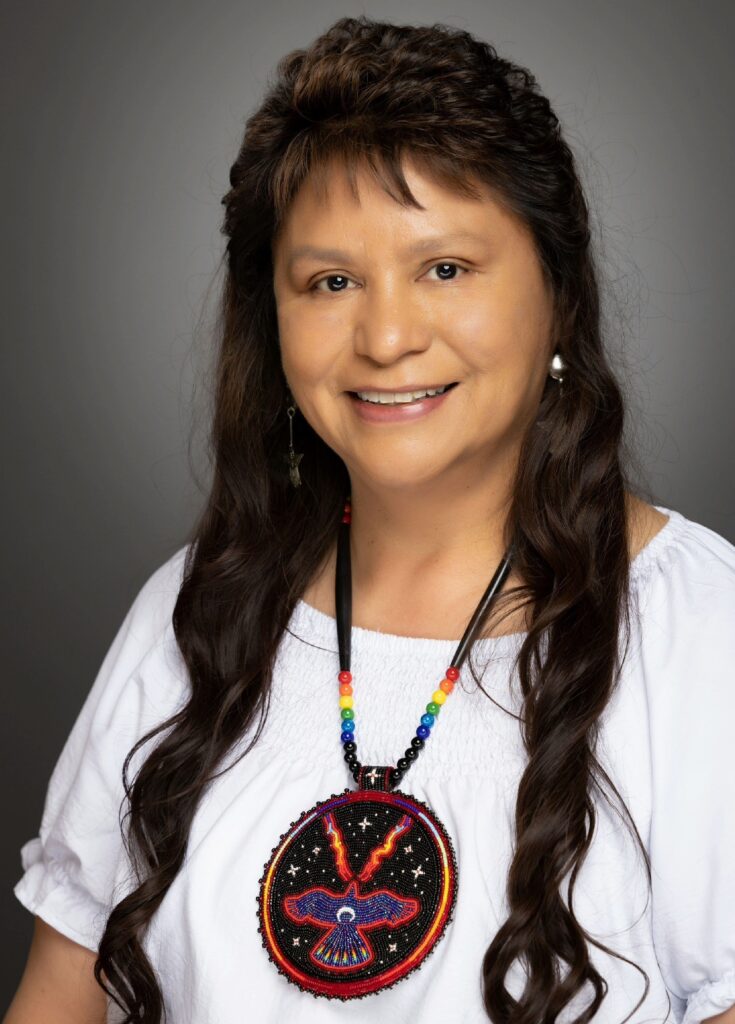
Jacqueline is an enrolled member of Northern Arapaho Tribe. She was born in Wyoming and raised in both Wyoming & Montana. Her parents are Robert and Elsie Geboe, her father is Northern Arapaho and her Mother is Chippewa Cree.
Jacqueline worked for the Wyoming Food Bank since 2020, in Fort Washakie as a Tribal Relations Consultant.
L’Dawn Olsen, Eastern Shoshone
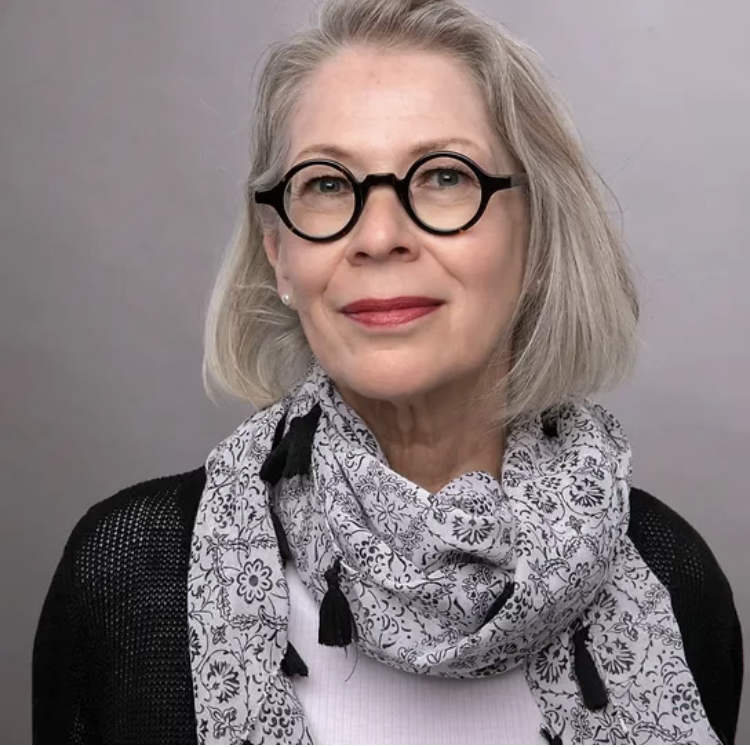
L’Dawn Olsen is the thankful daughter of an Eastern Shoshone mother belonging to the Yellow Bangs clan. She lives in Fort Washakie on Shoshone ancestral homelands on what is now called the Wind River Indian Reservation, Wyoming. Her Native ancestry is her North Star and roots the way she stands in the world and serves the Eastern Shoshone and Northern Arapaho people as a community intellectual and organizer, and as the Equity and Inclusion Specialist for the Wyoming Coalition Against Domestic Violence and Sexual Assault.
She was a fellow and holds an MFA from Brown University. Her education, training, and service employs decolonization technology in the reclamation and renewal of Indigenous ancestral ways of knowing and being toward Indigenous liberation, self-determination, and sovereignty. Close to her heart are the current projects Reclaiming Shoshone Ancestral Food Gathering, Peacemakers Lodge of Wind River, and Healing Rose: Native Women and Girls Well-Living Lodge.
Saydie Sago, Zuni Pueblo & Mescalero Apache
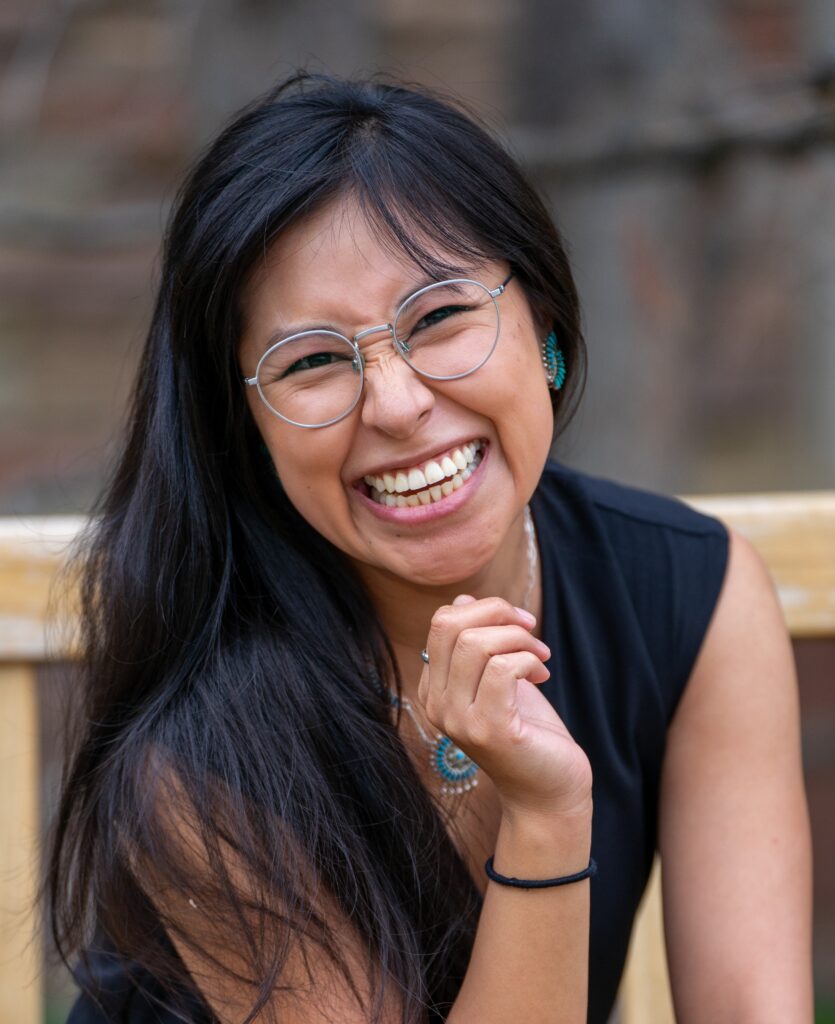
Saydie is a Native American doctoral student in the Integrative Physiology Department. She was born and raised in Colorado and received her bachelor’s and master’s degree at CU Boulder. Saydie is part of Dr. Christopher Lowry’s Behavioral Neuroendocrinology lab. Her research involves investigating alternative treatments for mental health problems using a soil bacteria strain, Mycobacterium vaccae NCTC 11659. Learning the basic mechanisms of how this soil bacteria reduces inflammation in the brain and other parts of the body will build a foundation for understanding the overall immunoregulatory of the gut microbiome and metabolite profile. Saydie wants to apply this research by helping her Native community with their health program initiatives for healthier lifestyles and reconnect with the ancestral lands by growing and eating traditional foods.
In addition to her research, she does many community outreach activities, such as teaching at the CU Upward Bound program, being an academic tutor for Native American high school students in the Boulder Valley School District, and mentoring underrepresented undergraduates. Saydie is passionate about giving back to her Native American community and wants to educate people about the importance of microbiome health and how it can heal the debilitating health problems in Indigenous communities.
Moderator: Rennea Howell (they/them), Quapaw
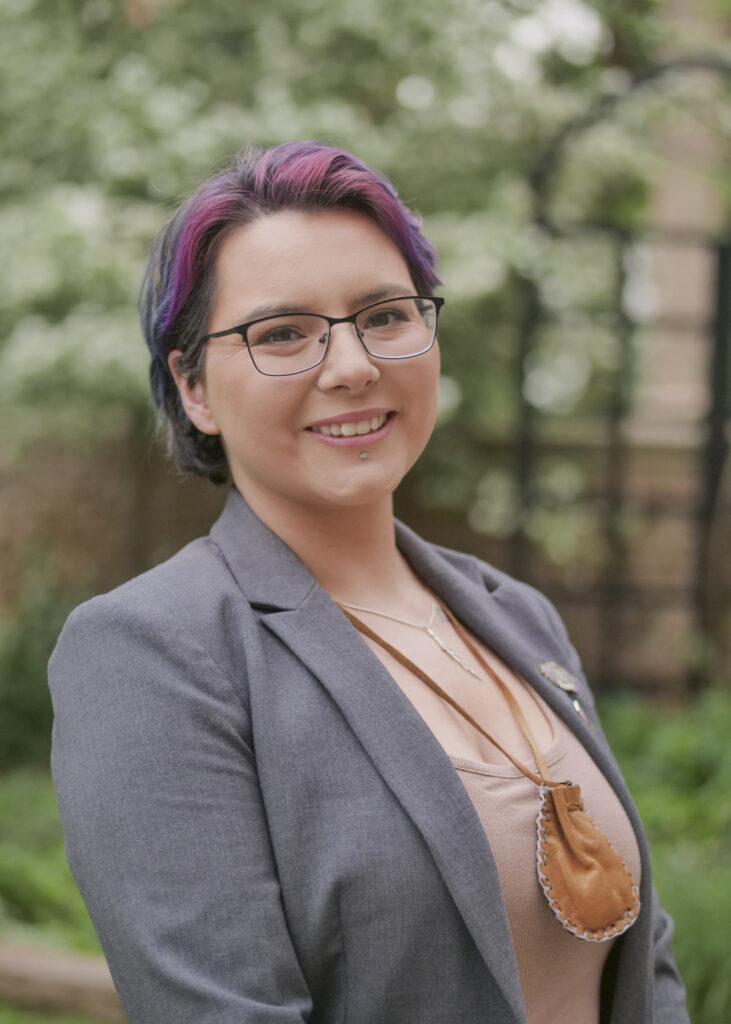
Rennea is a two-spirit from the Quapaw Tribe of Oklahoma. Rennea is a proud first gen college student and has a bachelor’s in molecular and cellular developmental biology from UC Santa Cruz and is currently pursuing a masters in diversity, equity and strategic impact through University of Oklahoma. Rennea has spent the majority of their professional career working in Indian Education focusing primarily on equity in STEM.
Currently, Rennea serves as the Diversity, Equity, and Inclusion Project Coordinator in the Office of the Senior Vice Chancellor for DEI at CU Boulder and is an IDEA (inclusion, diversity, equity, and accessibility) consultant for NASA.
Panel #4: Importance of Ceremony and Water Protection
Joseph “Joe” David Osage, Cheyenne
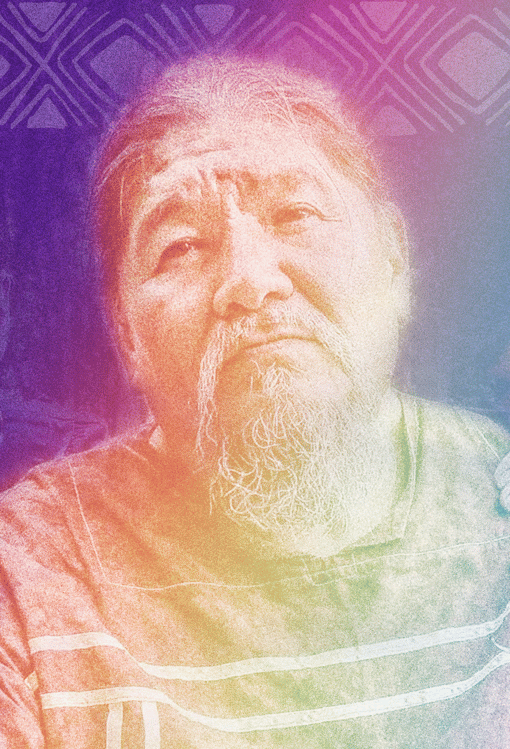
Arrow Priest and holder of the blue sky bundle of the Cheyenne.
Joe David was born in western Oklahoma, he is full blood Tsitsistsas (Cheyenne). He was raised in the community known as Red Moon, Hammon, Oklahoma. Joe David has lived the traditional Cheyenne life from birth, hearing the stories of many aspects of his people’s travels through time and across the continent. He has participated in the sacrificial rites that give him great responsibility to his people.
He was seated as ceremonial chief as well as earning the position of one out of sixteen sacred arrow priests and more recently, was appointed as the holder of the blue sky bundle, the second highest position in the Cheyene tribe, making him the keeper of blue skies – the one in charge of the weather and rain prayers.
Gabriela Galindo, Nahua & Wixárika descendant
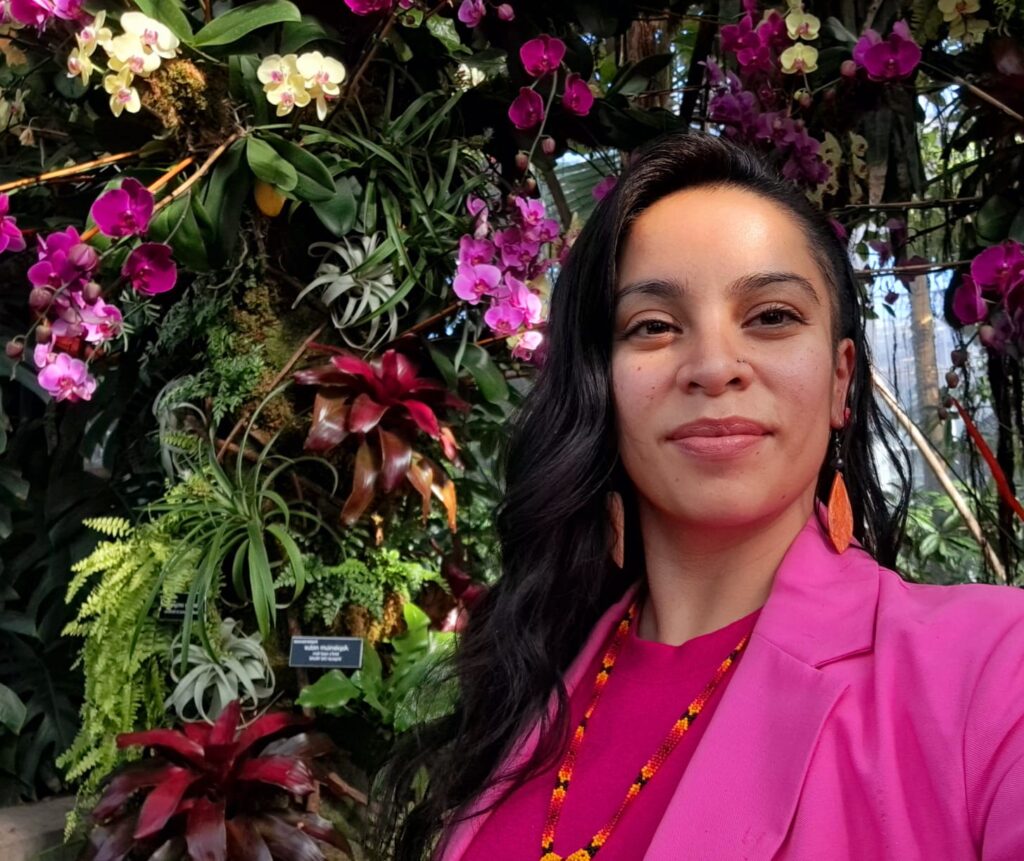
Gabriela Galindo is a weaving of various Indigenous lineages including Nahua and Wixárika as well as Spanish and African lineages. Her ancestors have most recently inhabited the central region of Durango, Mexico for more than 200 years. After high school, she enlisted in the U.S. military followed by graduating from MSU Denver in 2014 with a B.S. in Human Nutrition and Dietetics. She offered nutrition and breastfeeding education for low-income expectant mothers and young children at Jefferson County Public Health. She moved on to a prominent apothecary in Denver, focusing on holistic health of people and planet and reawakened curanderismo (traditional healing) in her lineage. Gabriela completed farm, seed saving and natural dyeing apprenticeships concurrently in 2022 at Frontline Farming. In addition to learning basic farming practices, she learned about the inequities in food and farming systems and policies that disproportionately impact Black, Indigenous and Farmers of Color.
As a fellow in the 2022-2023 Colorado Water Fellowship, she is working in a collaborative project with a mobile home community in Boulder, CO to advocate for and implement ecological based solutions for their decades long clean water crisis. Gabi is shifting narratives around water as a commodity for human profit and consumption to water as a source of life for all beings and ecosystems.
In August 2023, Gabriela completed the Mountain Herbalism Field Botany course. She traveled across different Rocky Mountain ecosystems learning to identify, locate, ethically harvest and process medicinal and edible plants and helped guide conversations around the impacts of colonization on land, plants, people and the global climate crisis. Gabriela advocates for the preservation and protection of sacred Indigenous medicines, cultures, traditions and ecosystems from exploitation and commodification.
Gabriela is an Aztec dancer and Sahumadora (community fire carrier) with Grupo Tlahuitzcalli. She is the Assistant Program Coordinator at Foundations for Leaders Organizing for Water and Sustainability (FLOWS) housed at CU Boulder, where she centers and elevates the voices of underrepresented communities in climate and social justice work in partnership with the City of Boulder and Boulder Housing Partners.
Leala Lakota Pourier, Oglala Lakota and Cheyenne River
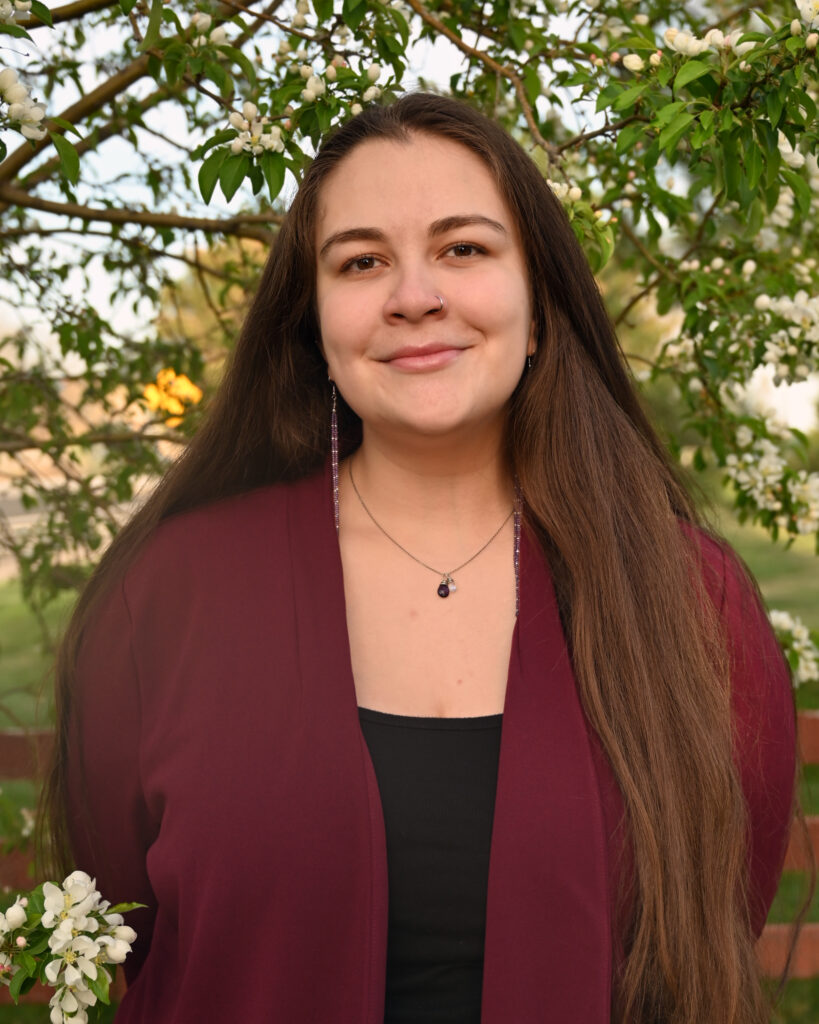
Born and raised in Colorado, Leala Lakota Pourier (she/they) is Oglala Lakota and Cheyenne River and her family is from the Pine Ridge Indian Reservation.
They are an environmental activist that works around raising awareness for the environmental connections to Missing and Murdered Indigenous women as well as fighting for Indigenous environmental justice. Leala has spoken on several panels at a wide variety events, given keynotes at universities including the Colorado School of Mines, and attended the 2021 COP26.